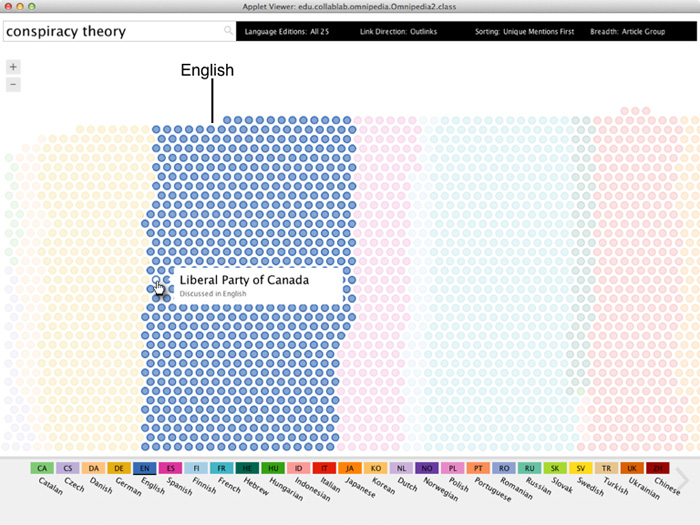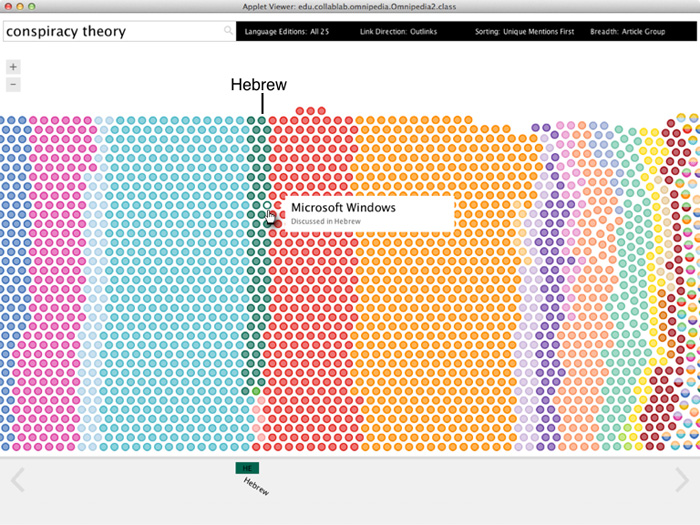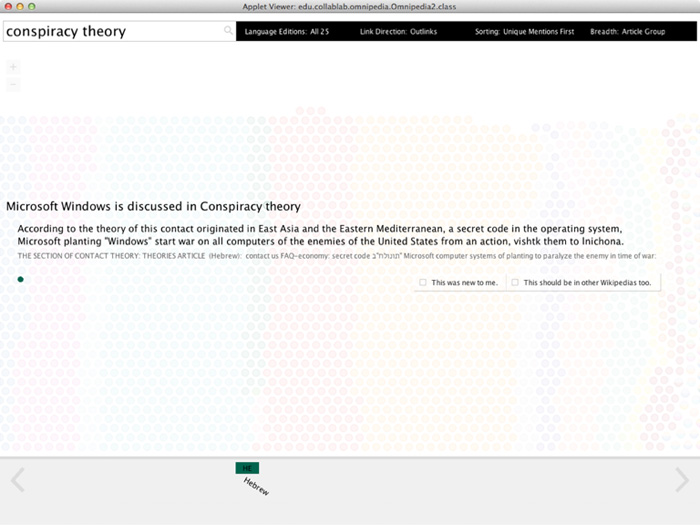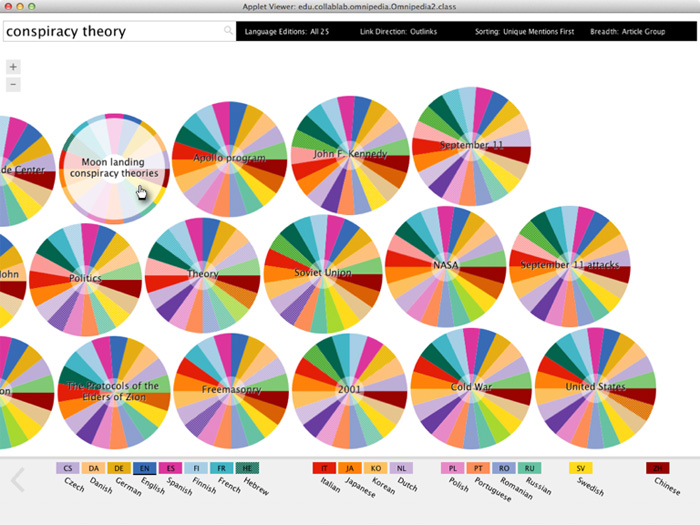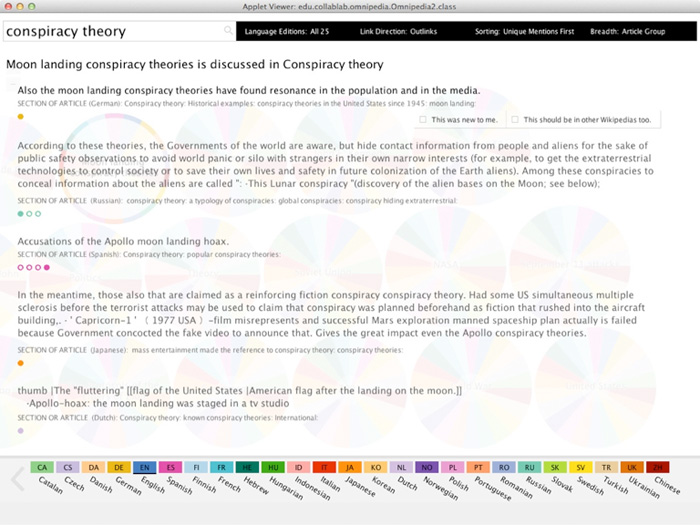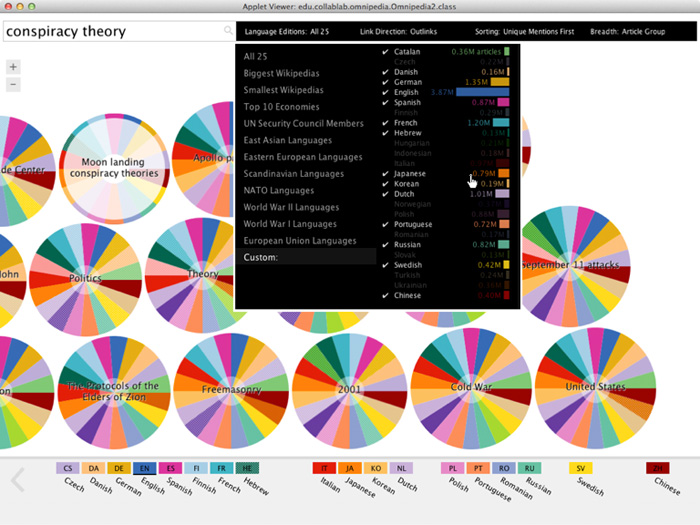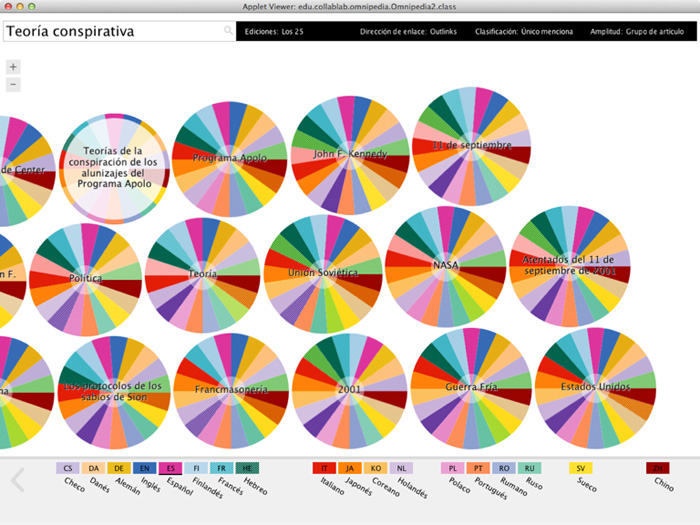About Omnipedia
With over 280 language editions, Wikipedia is a huge repository of diverse world knowledge. Each language edition has been shown to contain a great deal of unique information. However, language barriers prevent visitors from accessing most of the information on the site.
To remedy this situation, Omnipedia provides users with structured access in their native language to over 8 million concepts from up to 25 language editions of Wikipedia. Omnipedia highlights the similarities and differences that exist among the language editions, making salient information that is unique to each language as well as that which is shared more widely.
Omnipedia is not yet available to the public but we are hard at work scaling it up. For now, we've posted a set of screenshots to illustrate the kinds of insights found by our beta users.
Publications
- Omnipedia: Bridging the Wikipedia Language Gap Proceedings of CHI ’12, 1075-1084
- The Tower of Babel Meets Web 2.0: User-Generated Content and its Applications in a Multilingual Context Proceedings of CHI ’10, 291-300

